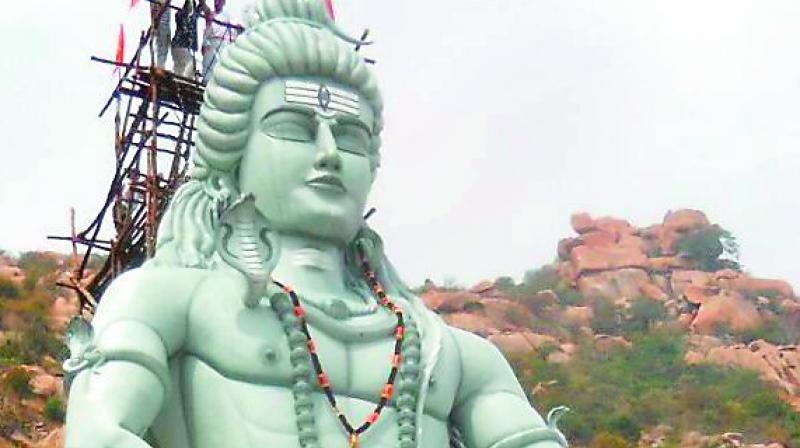Fete to recall grandeur of Vijayanagara Empire
Deputy Chief Minister K.E Krishna Murthy will launch the celebrations on Thursday.

Anantapur: Penukonda, familiar as the summer capital of Vijayanagara Empire, has its significance with huge number of temples and historic structures to exhibit the rule of famed emperor Sri Krishnade-varayalu.
It is all set for the two-day-long Utsavalu to recall the exemplary rule. The two-day fete will be held on February 14 and 15 at Penukonda.
Though the region was controlled at various points in history by the Hoysalas, Nawabs, Chalukyas, Vijayanagar, Mar-atha chieftain Murari Rao, Tipu Sultan, Nizam and eventually came under the British rule, after it was ceded to the British by the Nizam of Hyderabad,Vijayanagara Empire had proved its existence at every level.
In addition to historic structures such as Gagan Mahal and forts, Penu-konda is familiar as the temple town with hundreds of temples.
According to history, St Vyasaraja Swamy, Rajguru of Vijayanagara Empire had consecrated more than 300 Hanuman statues within Penuko-nda’s jurisdiction as against a total of 732 temples across South India when he took charge as the emperor to save Sri Krishnadevaraya from Kuhu Dosha. Many temples such as Nettikanti Hanuman temple of Kasapuram, Nemakal, Muridi and Jilledukunta were famous with historic notes and maintained by the endowment department in the district.
Further, Penukonda was a melting pot of various religions but the town and fort were established by early Hoysala kings, who were practitioners of Jainism. Due to its ancient Jain history and presence of many temples, it is one of the most revered places for Jains. The famous Pache Parsvanath Swamy temple, with the idol of Lord Parsvanath containing a single green coloured stone is located here.
After Krishnadevaraya, Venkatapathi Rayalu, the emperor of Vijayanagar, took over. He made Raya Dalavayi Koneti Naidu, the great-grandson of Kanaka Naidu of Chandragiri, as the Governor of Penukonda and conferred him with the title Maha-Raja-Raja-Sri and celebrated Koneti Naidu's marriage with Swarna. Koneti Naidu ruled Penukonda, Rayad-urga and Kundurpi Forts for about 17 years (1635-1652 AD). After the rule of Koneti Naidu, his descendants Raya Dalav-ayi Sri Venkatapathi Nayudu, Peda Timmappa Nayudu, Venkatapathi Nayudu, Koneti Nayudu, Rajagopala Nayudu and Timmappa Nayudu ruled Penukonda.
Gaganmahal, residence of emperors located closer to the hillock area, is being protected by the archaeology department that is also running a museum with antiques and statues. Though, the then Congress government had started 500-year-long celebrations and announced numerous developmental activities six years ago, it failed to provide funds.
The approach road towards the hill top to reach Lord Lakshmi Narasimha Swamy temple is still pending.
Penukonda MLA B.K. Parthasarathi, who paid floral tributes and flagged off the celebrations, observed that the state government initiated to provide drinking water by diverting Krishna water to Gollapalli reservoir.
“We are celebrating the actual fete as a tribute to Sri Krishnadevaraya, by improving water sources to the summer capital,” Parthasarathi said. He further added that the state government is keen on development of Penukonda as a historic place.
A huge statue of Sri Krishna Devaraya has been installed on NH 44, at the entrance of Penukonda Town.
As part of two day fete the deputy chief minister KE Krishna Murthy will launch the celebrations on Thursday. A heritage walk with rural folk teams- kolatam, keelu gurralu, goravayya, dappulu, chekka bhajan and urumulu will be started from Gaganmahal in main streets of Penukonda to recall heritage and culture of Sri Krishnadevaraya. Junior college is decorated towards organising the two day cultural fete with artists from various parts along with local artists. Collector Veerapandian said cultural programmes will be held throughout the day. Irrigation minister Mr.Devineni Umamahewar Rao will attend concluding session of the fete.

